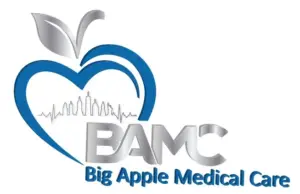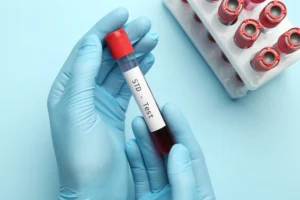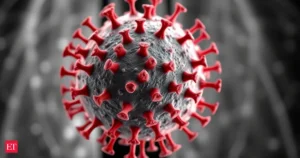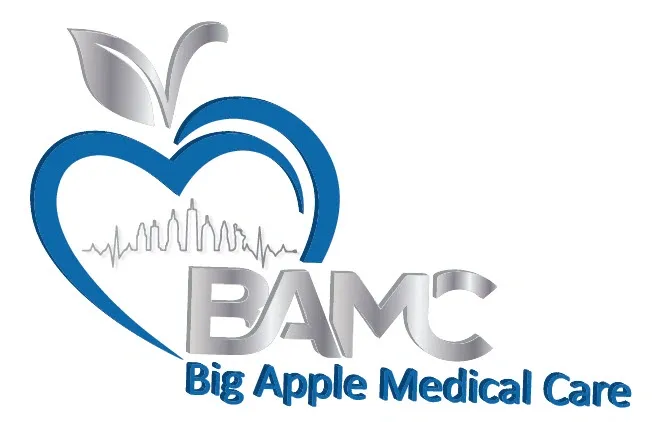The Rise of HMPV in Brooklyn: The Urgent Need for Enhanced Testing and Awareness
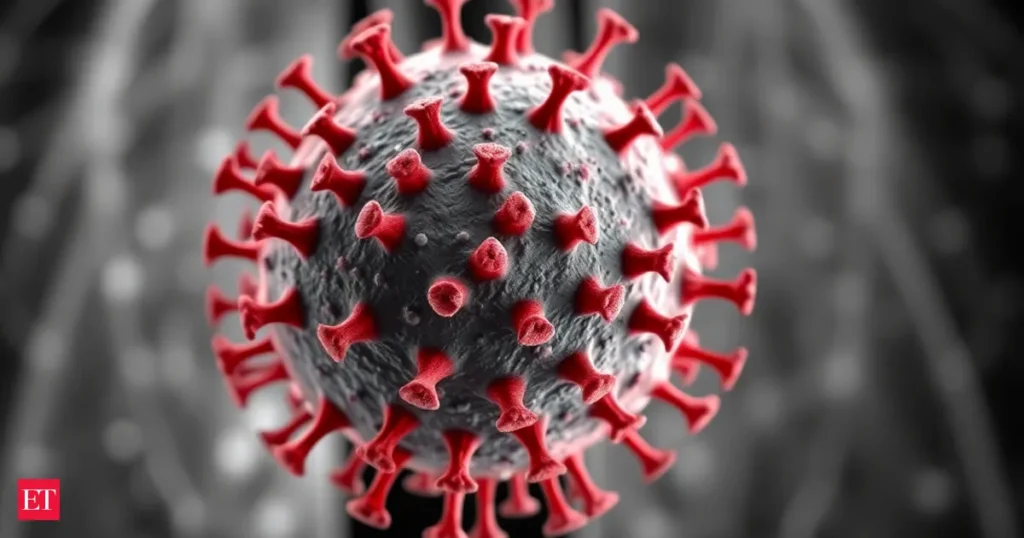
Human Metapneumovirus (HMPV) is emerging as a significant concern in the realm of respiratory infections, particularly as cases continue to rise in Brooklyn. Testing for HMPV is crucial for effective disease control and management, as it helps in identifying infected individuals and preventing further spread. The World Health Organization recognizes the importance of early detection to mitigate the impact of this virus on public health.
As awareness of HMPV grows, so does the need for accessible and accurate testing. With increased patient presentations of respiratory symptoms, healthcare facilities must prioritize testing protocols to ensure timely diagnosis. Big Apple Medical Care stands out as a key provider of HMPV testing, contributing to the broader effort of monitoring and managing this virus.
Understanding the nature of HMPV and the importance of testing can empower communities. By addressing this rising health threat, individuals and health professionals can work together to protect vulnerable populations and reduce the incidence of severe respiratory infections.
Understanding HMPV and Its Impact on Public Health
Human metapneumovirus (HMPV) poses significant public health challenges due to its ability to spread and affect vulnerable populations. Seasonal trends and outbreak patterns contribute to its impact. Recognizing these factors is vital for effective testing and response.
The Biology and Spread of Human Metapneumovirus
HMPV is a single-stranded RNA virus belonging to the Paramyxoviridae family. It primarily infects the respiratory tract, leading to illnesses ranging from mild cold-like symptoms to severe respiratory distress.
Transmission typically occurs through respiratory droplets when an infected individual coughs or sneezes. Touching surfaces contaminated with the virus can also result in infection. Outbreaks often peak during winter months, particularly in the Northern Hemisphere, highlighting its seasonal nature.
Comparisons with Other Respiratory Illnesses
HMPV shares similarities with other respiratory viruses, such as influenza and respiratory syncytial virus (RSV). These viruses can cause similar symptoms, making diagnosis challenging.
Unlike influenza, which has a widely available vaccine, there is currently no vaccine for HMPV. This lack of preventive measures creates higher risks for vulnerable populations, including the elderly, young children, and immunocompromised individuals.
Research indicates that HMPV infections can lead to serious respiratory conditions, especially in those with pre-existing health issues. The ability of the virus to mutate further complicates treatment and prevention strategies.
Vulnerable Populations and Seasonal Trends
Certain groups are at heightened risk during HMPV outbreaks, particularly the elderly and young children. Immunocompromised individuals are also susceptible to severe consequences.
Currently, HMPV infections show a distinct seasonal increase correlating with colder months. Effective public health measures are critical during these times to protect those most at risk. Clinics such as Big Apple Medical Care provide testing to help identify and manage HMPV cases promptly.
Diagnostics, Symptoms, and Complications of HMPV
HMPV (Human Metapneumovirus) presents with distinct symptoms and can lead to serious health issues. Proper diagnostics and awareness of potential complications are crucial for effective management and treatment.
Recognizing Symptoms and Seeking Testing
Common symptoms of HMPV include:
- Cough
- Fever
- Wheezing
- Shortness of Breath
- Runny Nose
- Sore Throat
These symptoms often resemble those of other respiratory infections. Individuals should monitor their health closely, especially if symptoms persist or worsen.
Testing for HMPV is essential, particularly for those with underlying respiratory conditions. Clinics like Big Apple Medical Care offer HMPV testing in Brooklyn ensuring timely diagnosis and management. Accurate testing helps differentiate HMPV from other pathogens, such as influenza and RSV, guiding the appropriate treatment strategy.
Potential Complications and Association with Chronic Respiratory Conditions
HMPV can lead to severe complications, especially in vulnerable populations. It has been associated with conditions such as:
- Bronchitis
- Pneumonia
- Exacerbation of asthma
- Increased risk for individuals with COPD
Patients with chronic respiratory diseases may experience more intense symptoms and prolonged illness. Recognizing these potential complications allows for better preventive measures and treatment strategies, minimizing the risk of severe outcomes.
Early intervention is vital, particularly for those at higher risk. By understanding the symptoms and seeking prompt testing, individuals can help prevent complications and ensure better health outcomes.
The Role of Testing in Controlling HMPV Transmission
Testing plays a vital role in identifying and controlling the transmission of Human Metapneumovirus (HMPV). Timely and accurate diagnosis can interrupt the chain of transmission and contain outbreaks effectively.
Advancements in Diagnostic Tests
Recent advancements in diagnostic tests for HMPV have improved accuracy and speed. Nucleic acid amplification tests (NAAT) and rapid antigen tests are increasingly accessible for healthcare providers. These tests can identify the virus in respiratory samples, providing results within hours.
Early detection allows for targeted interventions to prevent further spread. Testing is particularly important in populations at higher risk, such as children and the elderly. With the rise of HMPV alongside other respiratory pathogens like RSV and the flu, robust testing helps distinguish HMPV from similar infections, guiding appropriate treatment and management strategies.
Preventing Further Spread and Outbreaks
Effective testing protocols can significantly reduce the transmission of HMPV. Identifying infected individuals enables timely isolation and treatment. Understanding exposure history, particularly in cases of close contact, can further aid in controlling outbreaks.
In healthcare settings, regular testing is critical to monitor and mitigate outbreaks. Areas and surfaces frequently touched by infected individuals should undergo decontamination to minimize spread. Clinics like Big Apple Medical Care have implemented comprehensive testing strategies focused on early detection and response, crucial in the context of potential Covid-style pandemic dynamics.
Timely testing not only informs public health decisions but also educates communities on maintaining hygiene practices to curb transmission.
Healthcare Guidance and Preventive Strategies
Effective management of HMPV (Human Metapneumovirus) involves both public health initiatives and healthcare system preparedness. These strategies focus on reducing infection rates, enhancing patient care, and maintaining healthcare capacity.
Public Health Recommendations and Personal Hygiene
Public health authorities emphasize the importance of personal hygiene in preventing HMPV transmission. Encouraging regular handwashing with soap for at least 20 seconds can significantly reduce the spread of respiratory viruses.
Key recommendations include:
- Avoiding close contact: Individuals should maintain physical distance, especially in crowded areas.
- Mask-wearing: Masks can help limit virus transmission in high-risk environments.
- Vaccination: Though there is no specific vaccine for HMPV, seasonal flu vaccinations are advised to improve immunity against similar respiratory illness.
Agencies like the World Health Organization and the UK Health and Security Agency advocate for ongoing surveillance of respiratory outbreaks. Education on flu-like illness symptoms can expedite testing and treatment, enhancing community response.
Hospital and Healthcare System Preparedness
Healthcare systems must be ready for potential HMPV outbreaks. This includes ensuring adequate staffing, resources, and protocols for patient care.
Preparedness measures involve:
- Testing protocols: Clinics such as Big Apple Medical Care should facilitate HMPV testing to quickly identify cases.
- Resource management: Hospitals should stock essential supplies, including ventilators and antiviral medications, to manage respiratory distress.
- Training staff: Healthcare providers must be trained to recognize symptoms and implement isolation procedures to prevent virus spread.
Oversight by disease control agencies can guide hospitals on effective response strategies. Prepared systems contribute to improved patient outcomes, even during times of increased respiratory illness.
Book Appointment
For those seeking HMPV testing, booking an appointment is essential. Timely testing can help in understanding one’s health status and taking necessary precautions. Big Apple Medical Care offers comprehensive testing services in Brooklyn. Individuals can easily schedule an appointment by calling 718-333-5120. This clinic focuses on providing efficient and accurate results, ensuring patients receive the care they need.
